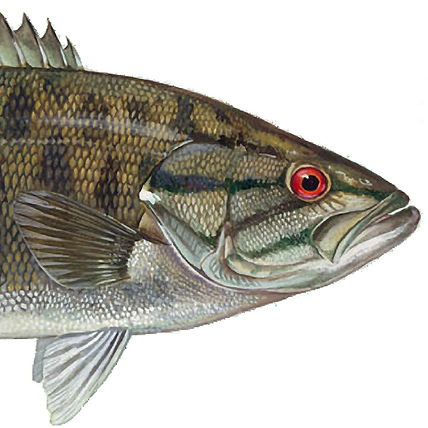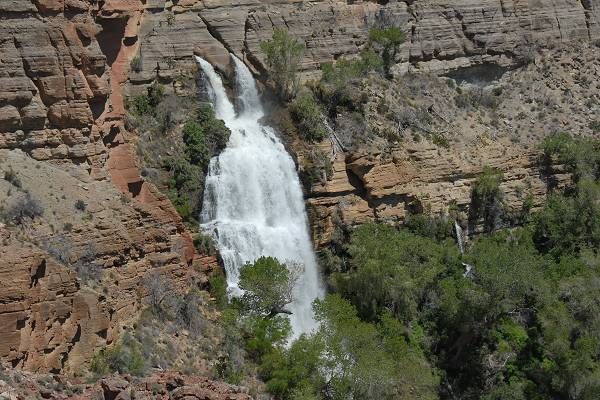
It was a grim discovery. Smallmouth bass, whose native range encompasses rivers and lakes in much of the Eastern United States and Great Lakes, have long plagued the Colorado River. State agencies and anglers probably began stocking them in the watershed in the mid-1900s, and they’ve since conquered much of the basin, including Lake Powell, the reservoir that sloshes above Glen Canyon Dam.
Scientists have long dreaded this development. As Lake Powell has shrunk over the past two decades, drained by overallocation and chronic drought, its diminishment has created prime conditions for bass to infiltrate the Grand Canyon. But Brian Healy, a postdoctoral researcher at the U.S. Geological Survey and Grand Canyon National Park’s former fish biologist, said that even though he and his colleagues expected the species to eventually become a problem, “we didn’t realize it would be an issue so quickly.”
I read this today and it is another grim reminder that ecosystems are being constantly trashed.
Members of the Working Group on Smallmouth Bass Eradication in the Miramichi made a unanimous decision following an unsuccessful request for the Province of New Brunswick to become proponent, and multiple catches of smallmouth bass outside the project area this year.

Miramichi smallmouth project will not proceed
We have the same problem here with asshole smallmouth anglers dumping bass into trout and salmon systems. The Miramichi watershed is the most productive salmon system on the continent or, at least, it was.

T is for Thunder River. Entirely within Grand Canyon National Park, Thunder River is the shortest and steepest river in the United States (running 0.5 miles long and dropping 1200 feet). The sound of the water as it explodes from the Redwall and Muav Limestones gives the river its name. Wilderness River Adventures#WRAAtoZGrandCanyon
Speaking of the Grand Canyon, how have I never heard of this, or if I did, how did I forget.
A title in dispute. LOL
BTW A great photo at the top.